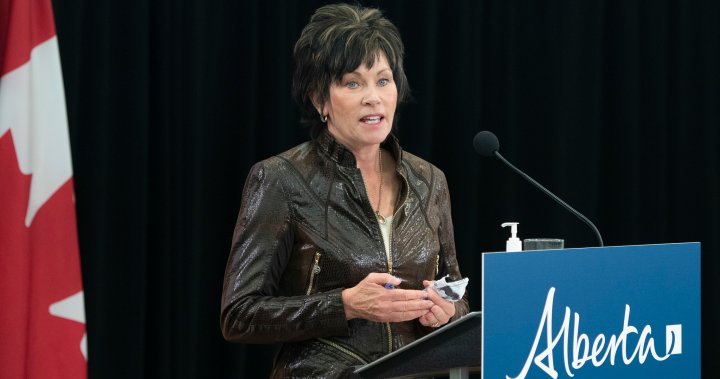
Oil and gas here to stay for ‘decades’ despite demand for green energy: Alberta energy minister
Global News
Energy Minister Sonya Savage said Western democracies have been exclusively focused on climate change to the detriment of energy security, reliability and affordability.
Alberta Energy Minister Sonya Savage wants the federal government to treat Alberta’s oil and gas reserves as a strategic asset, not a liability to phase out in favour of green energy sources.
During a press conference on Friday, Savage said Western democracies have been exclusively focused on climate change to the detriment of energy security, reliability and affordability. She pointed to federal policies such as Bill C-69 and emissions caps on oil and gas production as evidence that the federal government is vilifying Alberta’s energy industries.
“Yes, the world is in an energy transition. We need to address climate change, and we are doing that, but the transition is going to take time and it’s not going to be easy. Oil and gas will continue to be used during that transition for decades,” Savage said.
Savage also claimed the failure to prioritize energy security has made energy production difficult in North America which resulted in a transfer of wealth to places like Russia and Venezuela. Russia’s invasion of Ukraine highlighted the need for “ethical” oil from Canada instead of places like Venezuela and Saudi Arabia, Savage said.
“It is terribly frustrating to see the U.S. government now scrambling to increase supply from some of the world’s worst regimes: Iran, Russia, Saudi Arabia, Venezuela,” she said.
“We have an industry that’s committed to net-zero production in the oilsands. We’re a responsible democratic government, so it is very frustrating.”
Savage’s comment comes as the federal carbon tax is set to increase from under nine cents to 11 cents a litre on April 1, a move that Environmental and Climate Change Canada (ECCC) says is a central part of the federal government’s plan to reduce greenhouse gas emissions.
“It’s completely true to say that during the transition away from fossil fuels, we still rely on fossil fuels,” said Werner Antweiler, a professor at the University of British Columbia’s Sauder School of Business. “I think the real question is … what kind of policies can be put into place to deal with that transition?”













